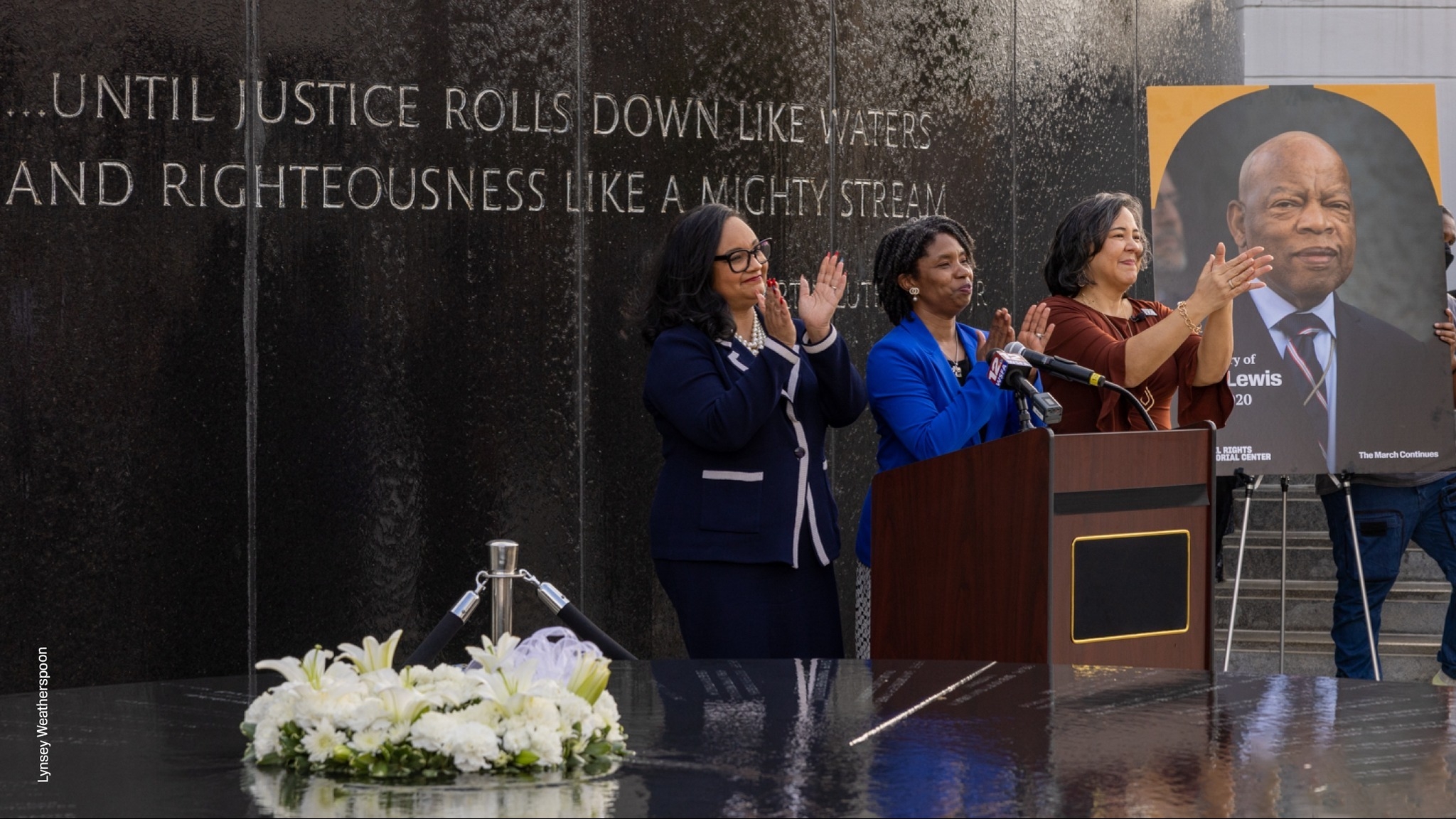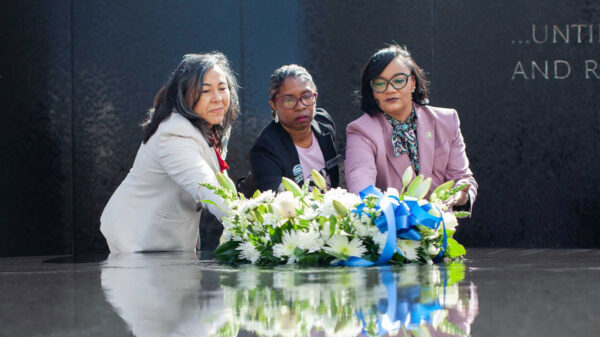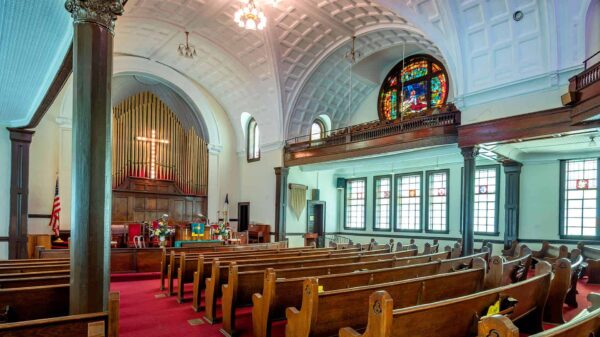|
Getting your Trinity Audio player ready...
|
A delegation of congressional and civil rights leaders met last Friday to honor U.S. Congressman John Lewis and the 40 martyrs inscribed on the Civil Rights Memorial in Montgomery.
The wreath-laying ceremony, held outside the Civil Rights Memorial Center in downtown Montgomery, was the first held since the passing of Congressman Lewis, who officially began the tradition in 2010.
“He was our anchor,” said President and CEO of the Southern Poverty Law Center Margaret Huang at the gathering on Friday. “He kept our movement anchored in the highest ideals of equity and justice.”
U.S Rep. Nikema Williams, D-Georgia, who represents the same Congressional district in Georgia as Lewis did during his 17 terms in office, joined Huang and Tafeni English-Relf, director of the Civil Rights Memorial Center and the Alabama State Office, at the ceremony on Friday.
The first woman to represent the U.S. 5th Congressional district in Georgia, Williams also hails from Alabama, just as Lewis did.
“Today’s wreath-laying painfully reminds us that the violent injustice that Black people faced is not in the distant past,” Williams said. “The birth of the modern civil rights moment was less than a lifetime ago and connects directly to our current fight.”
Williams said that she considered lewis “a friend and a mentor” and recalled marching with him in Atlanta on issues of reproductive freedoms and gun safety.
“For Congressman John Lewis, Hosea Williams, and the 40 martyrs memorialized on these grounds and the countless others who’s lives were taken for equality, it is our responsibility to keep fighting,” Williams said in closing.
Joseph J. Levin, Jr., a co-founder of the Southern Poverty Law Center and Board Emeritus member, was also present at the ceremony and recalled how Maya Lin, the memorial’s designer, was inspired by a quote from Dr. Martin Luther King Jr — “Until justice rolls down like waters and righteousness like a mighty stream.” — Now inscribed along the granite wall at the memorial’s site.
“We cannot fail those heroes who died or suffered in support of this modern civil rights movement,” Levin said. “There is more work to be done in every community across the nation, and good trouble will continue to be a critical element of its success.”






















































